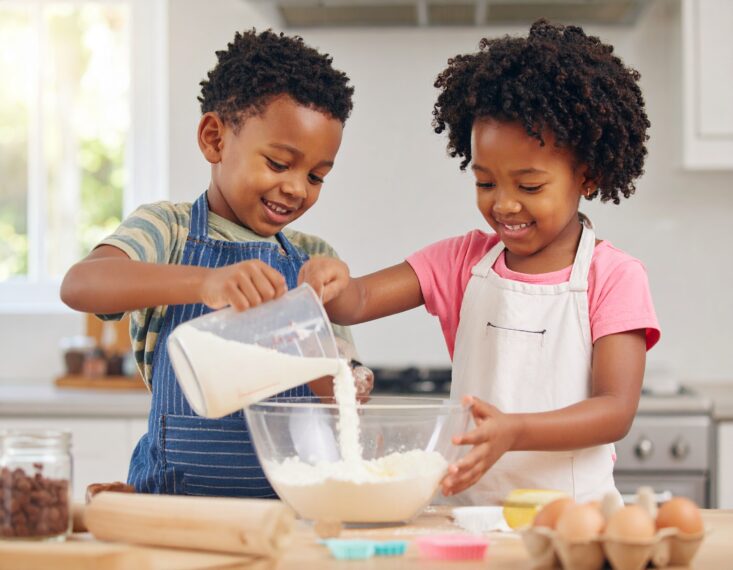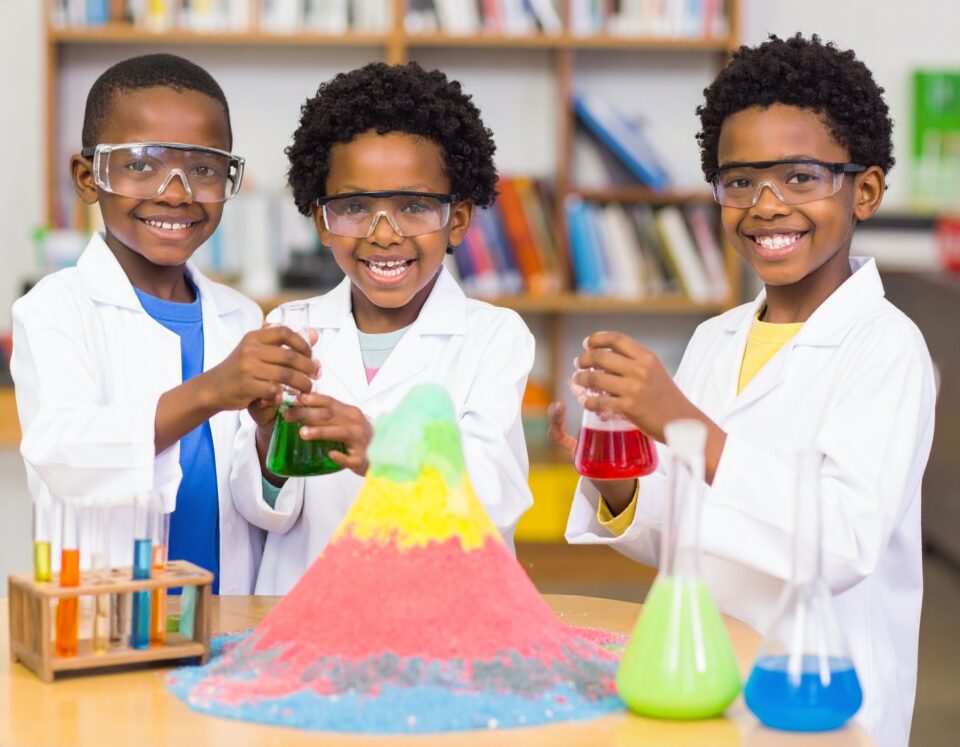Written by Tanya Terry, with images by L. M. Land for the Flint Courier News, AI
Featured photo: At home volcanic science experiments can help satisfy a young person’s natural curiosity.
The first day back at school for many school students in multiple districts falls in early September, with the Flint Community Schools resuming classes September 2.
Over the summer, students lose up to two months of learning from not being active with practicing their skills, recently pointed out Maggie Thompson, center director of Sylvan Learning Center. This is called “summer slide.”
Thompson added this can apply to when students aren’t reading at home, or aren’t practicing their math.
“When students have that slide, it’s harder for them to get back into the swing of things when they go back to school,” noted Thompson. “A lot of times teachers spend a good portion of the beginning the year -up to a month or two- just trying to remind and refresh those memories of what they learned the previous year.”
Self confidence is what’s often hurt the most by this learning loss, according to Thompson’s observation.
“When they don’t remember those things, they often feel like they’re not keeping up with their friends,” she added. “Sometimes they just feel like they’re dumb and they don’t know what they’re doing. When their confidence is low, then they do poorer in school. They can’t finish their assignments. They test lower. They’re just not able to keep up.”
Thompson also said educators are still battling COVID repercussions from that period.
“It’s been a slow progression of trying to get those confidence levels back up, and the amount of information and skills that they missed out on during that time.”
But, Thompson said it’s not too late to prevent summer slide, or even COVID learning loss from being too much of an issue by spending some time doing certain activities with children.
Thompson shared that many parents don’t like comic books for learning, though they can help with it.
She also shared that graphic novels are very popular with students right now, especially for those in middle school.
“Parents tend to think they’re just junk food reading. But, seriously, there are different skills they are learning with comics and graphic novels.”
Thompson and the Sylvan Learning Corporate Team pointed out that comics often use authentic conversational language. So, they noted, repetition of high-frequency words and exposure to slang, idioms and transitions builds language skills in a real-world way. Frequent exposure to speech bubbles helps students read with expression and tone. Comics and graphic novels also build confidence in struggling or reluctant readers by using shorter text blocks and exciting visuals. Finishing a comic or graphic novel gives a sense of accomplishment, encouraging more reading, the team added.
“If you allow them to have some choices in some of these graphic novels and things like that, that will get them back engaged, they will start enjoying reading and it’s just a stepping stone. They’re not going to read graphic novels for the rest of their lives. But, it keeps them engaged enough to not hate reading.”
Thompson suggests letting students pick out one graphic novel, as well as one chapter book, on trips to the library or bookstore.

Thompson stated the kitchen is a fantastic math laboratory, making math tangible and useful. She said a good way to add addition or subtraction to recipes is to double, triple or half them. In addition, she suggests letting children measure ingredients.

